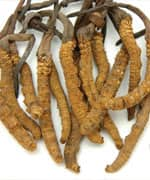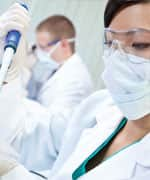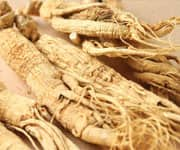Life Extension Magazine®

Do you ever wish you could just recharge your batteries?
Most of us do, especially as we grow older.
Fatigue is a major problem in American adults, accounting for millions of office visits each year.1 The complaints are similar: groggy for much of the morning, can’t sleep well or long enough at night, lack the energy for daily tasks and even enjoyable diversions.
Doctors hear these complaints all the time, and are nearly as frustrated as their patients at their powerlessness to do anything about it.
What’s worse, the only drugs available to combat fatigue have a daunting side effect profile, including the real possibility of dependence (addiction).2,3 Caffeine-laden “energy drinks” are now on the market, and while modest amounts of caffeine are likely to be harmless,4 large doses, especially in combination with sugar and other additives, can result in caffeine toxicity or overdose-related side effects.5-7
Surprisingly, drugs and caffeine don’t truly provide meaningful energy; they temporarily squeeze adrenaline from your adrenal glands and in the long run can wear down your defenses still further.8
But you can, in fact, literally recharge your batteries, with a pair of new supplements that work in combination to restore your natural energy levels. Cordyceps and fermented ginseng, both age-old life-giving supplements, are capable of boosting your body’s levels of adenosine triphosphate, or ATP.9,10
ATP molecules store energy in their chemical bonds, similar to the way a battery stores energy when it is charged up. Whether you are moving, thinking, speaking, relaxing—literally everything you do depends on a full charge of ATP.
And when we slow down with aging, it’s now clear that we are simply running low on ATP. We make ATP in our mitochondria, where we burn fuel for energy, but that process grows increasingly inefficient with age.11 While fatigue has many causes, both biological and psychosocial, insufficient ATP is a key factor in aging: either we don’t make it as efficiently as we did in youth, or we use more of it to do simple tasks that we could previously do with less effort.
Let’s take a hard look at cordyceps and ginseng to understand how they work in tandem to recharge your ATP levels, restore your energy, and beat fatigue. You don’t have to take aging lying down!
TABLE: The Many Causes Of Age-Related Fatigue51
Biological Causes |
Psychosocial Causes |
Changes in skeletal muscle function |
Depression |
Cardiovascular impairment |
Anxiety |
Anemia |
Pain |
Dehydration and electrolyte disorders |
Interpersonal conflict |
Increased inflammatory mediators (cytokines) |
Stress |
Nutritional deficiencies |
Cognitive impairment |
Cordyceps

Cordyceps sinensis is considered one of the most valuable medicinal fungi in China.12 The fungi live on, and ultimately kill caterpillars of the “ghost moth” and other insects, replacing the dead caterpillar’s tissues with their own fungal structures.12 Formerly collected only in the wild at great expense, cultured, fermented versions are now available that have equal potency.13,14
Cordyceps has historically been used in traditional Chinese medicine, among other purposes, for its metabolic and energy-producing effects.15 A standardized, fermented extract of the fungus called “Cordyceps” is now available to consumers.
Studies show that cordyceps extract increases available energy in muscle and other tissues by boosting levels of ATP, the tiny “batteries” that our bodies use to store and move energy. Mice given cordyceps supplements, for example, demonstrated an 18.4% increase in liver ATP levels.16,17 This was accompanied by a drop in the building blocks of ATP, indicating that the body was using them up to create new energy-rich ATP molecules.
Cordyceps is especially effective at raising ATP levels under conditions of stress that produce fatigue. For example, in animals with iron deficiency anemia, a common cause of fatigue in humans, cordyceps boosted both ATP levels and blood flow, another measure of energy metabolism.9
And cordyceps reduces accumulation of toxic lactic acid, the substance that produces fatigue in over-stressed muscles.18 Our muscles produce lactic acid when they are forced to burn glucose without sufficient oxygen, such as when we sprint or do other intense exercise without enough time to breathe. This has direct bearing on exercise capacity; when rats are forced to swim until exhaustion, they show lower lactic acid levels, and swim longer, if they are supplemented first with cordyceps.18,19 Studies show that supplementation can increase swimming time by as much as 88%.18-20
Another way that cordyceps enhances your available energy is by increasing insulin sensitivity.15,21 The more sensitive your cells are to insulin, the faster and more completely they take up sugar from your blood. That has the short-term effect of allowing your cells access to more energy, and the long-term effect of lowering your risk of diabetes, heart disease, and other chronic conditions.
Cordyceps has been demonstrated to increase both immune cell production and heart muscle mitochondrial ATP production.14,22
In an impressive human study, 20 healthy adults aged 50-75 were supplemented with cordyceps extract, 333 mg three times daily for 12 weeks, or a matching placebo.23 Every day they performed exercise testing on a stationary bicycle to maximal levels, and had their physiological parameters measured continuously. By the end of the study period, the placebo patients performed no better than at baseline, but the supplemented subjects had a 10.5% improvement in the time until muscle fatigue was perceived (as measured by lactic acid levels in muscle). Their ability to work out until they were “out of breath,” increased by 8.5% as well.23
Cordyceps makes a contribution to energy levels by supporting maximal quantities of energy-storing ATP, the little “batteries” that run our bodies. Let’s turn now to ginseng to see how it is the ideal complement to cordyceps.
What You Need to Know
 |
Conquer Fatigue And Boost Mental Stamina
- Low energy levels and fatigue plague millions of Americans, especially as we age.
- While fatigue has many different physical and mental causes, it ultimately comes down to insufficient levels of ATP, the tiny molecular batteries our bodies use to store and transport energy.
- Mainstream medicine and popular culture have conspired to produce a toxic response to fatigue in the form of stimulant drugs or caffeine/sugar combinations that have potentially addictive, and even fatal, adverse effects.
- Both cordyceps and ginseng have hundreds of years’ worth of proven energy-boosting benefits without addictive or toxic potential.
- Both supplements are now known to act by raising ATP levels, making more energy available to brain, muscle, and other vital organs, restoring more youthful energy levels.
- Choose a fermented ginseng product; these have been shown to increase absorption of the active ginsenoside molecules by more than 15-fold.
Ginseng
Like cordyceps, ginseng has a long history of traditional use in China, where it is considered to have “qi-invigorating” properties.10 The concept of “qi” is that of “energy flow” or “vital energy;” its deficiency is associated with heart disease and lethargic blood flow.24,25
Not surprisingly, then, studies show that ginseng increases ATP production in the mitochondria, in this case in part because of powerful antioxidant effects that shield mitochondria from the fierce energy-rich environment in which they must function.10,26,27 It has recently been demonstrated that ginseng activates multiple enzymes in the so-called tricarboxylic acid cycle (or Krebs cycle), enabling mitochondria to extract maximum energy (in the form of ATP) from their glucose fuel in the presence of oxygen.28
Ginseng is also considered an adaptogen, namely, a compound that helps the body adapt to a wide variety of stresses and extremes.29-31 Unfortunately, most forms of ginseng require fermentation in the human intestine before they can be absorbed, which can limit their potential usefulness. An advanced formulation of ginseng, GS15-4, surmounts that obstacle by naturally fermenting premium Panax ginseng, which has been shown to increase absorption of the essential compound K (a ginsenoside metabolite) by more than 15-fold.32
In the laboratory, rats treated with a single dose of energy-boosting ginseng increased the time they could run on a treadmill by 132%; after 7 days it had increased by 179%.33 This study traced the source of the benefit to enhanced adaptation of the pituitary-adrenal gland system, enabling production of appropriate amounts of stress hormones until the animals’ bodies had adapted to the exercise regimen. In fact, studies of chronically stressed animals demonstrate that ginseng supplementation beneficially lowers plasma levels of the stress hormone cortisol, and reverses disturbances in neurotransmitter precursor balance and fatty acid metabolism that contribute to stress-induced fatigue.34,35
Multiple other studies have now confirmed that ginseng supplements prolong aerobic exercise endurance in even untrained animal models.26,34,36-38 Some of this effect appears to arise from a reduction in fatigue of the diaphragm, the large, sheet-like muscle that we use to draw in breath;39 fatigue of the diaphragm is a sure way of ending an exercise session.
Studies of the effects of ginseng in depression reveal potent antidepressant effects that contribute to improved energy.37 And studies of obese animals demonstrate down-regulation of a host of genes involved in lipid and energy metabolism, an important finding in light of the fact that obesity contributes to fatigue.1,40
In human subjects, fermented ginseng reduces anxiety and improves sleep, which of course makes for improved energy levels. One study showed that a total dose of 1,845 mg/day of fermented ginseng (three capsules of 205 mg each, three times daily for 8 days) improved the so-called “first night effect” in which sleep in an unfamiliar environment is disturbed.41
The same researchers identified an anti-anxiety effect produced by improvements in levels of the calming neurotransmitter GABA, suggesting that the sleep improvements may have been related to reductions in anxiety, another cause of fatigue.41
In a similar fashion, stressful cognitive tasks can produce mental fatigue (perhaps through anxiety production), and a single 200 mg dose of a standardized ginseng extract significantly reduced mental fatigue while improving cognitive performance on mental arithmetic tasks in a group of healthy volunteers.42
In a subsequent study, researchers gave healthy volunteers either 200 mg of the ginseng extract, or a placebo, immediately followed by a battery of cognitively demanding tasks, and then 30 minutes later by either 25 grams (nearly an ounce) of glucose or a placebo.43 While both ginseng and glucose improved performance on arithmetic and reduced feelings of fatigue, there was no synergistic effect.43 However, because ginseng lowered blood sugar, while the glucose obviously raised it, the researchers concluded that ginseng was both glucoregulatory and provided the mental stamina necessary to engage in extended cognitive processes.43
And in still another study, a standardized ginseng extract, 400 mg/day for 8 days, improved feelings of calmness in healthy young adults, compared with placebo recipients.44 On both the first and the 8th day, supplemented subjects also performed better on mental arithmetic tasks as well.44
Why You Need Fermented Ginseng
 |
Ginseng has numerous health benefits, but it is poorly absorbed from the digestive tract in its native form. It is not absorbed in the stomach or small intestine (sites where we normally absorb nutrients and drugs), requiring fermentation by microbes in the human large intestine (colon) to be converted into a bioavailable form.45-48 But because our colonic bacterial populations shift as we age, we potentially lose the ability to efficiently convert and absorb the active ginsenoside molecules.49
Innovative research in Korea, home to the world’s most potent ginseng supplies, has now demonstrated the utility of fermenting premium ginseng in customized fermenters.50 Studies in humans reveal that, compared with standard ginseng extracts, GS15-4 fermented ginseng extract is absorbed 15.5 times as much in 24 hours, achieves a 27-fold higher peak concentration in blood, and reaches that peak in roughly a quarter of the time.32
Fermented ginseng is so potent that it can almost be considered a different biological product, one that can bring the myriad laboratory-proven benefits of ginseng to ordinary people who could use a little more energy in their lives.
Summary
Fatigue is like pain—it has many different causes, is difficult for others to assess objectively, leading to undertreatment, and is potentially debilitating.1
Yet fatigue, both mental and physical, can be traced to insufficient levels of the tiny battery-like ATP molecules in which we store the energy our bodies derive from foods, mainly fats and sugars. By restoring ATP levels, we literally “recharge our batteries,” relieving fatigue and restoring more youthful energy levels. Cordyceps and ginseng work in a complementary fashion to boost ATP levels and charge up our bodies’ energy stores.9,10
If you are one of the millions of Americans whose batteries seem chronically run down, who could use a safe, non-addictive, and biologically-proven energy boost, don’t turn to caffeinated energy drinks or prescription drugs, laden as they are with toxic side effects.1-3,5-7 Instead, choose a natural energy-restoring combination of cordyceps and fermented ginseng to optimize energy production and re-invigorate both body and mind.
If you have any questions on the scientific content of this article, please call a Life Extension® Wellness Specialist at 1-866-864-3027.
References
- Available at: http://health.nytimes.com/health/guides/disease/chronic-fatigue-syndrome/print.html. Accessed November 4, 2013.
- Morrow SA, Smerbeck A, Patrick K, Cookfair D, Weinstock-Guttman B, Benedict RH. Lisdexamfetamine dimesylate improves processing speed and memory in cognitively impaired MS patients: a phase II study. J Neurol. 2013 Feb;260(2):489-97.
- Available at: http://www.nlm.nih.gov/medlineplus/ency/article/001244.htm. Accessed November 4, 2013.
- Heckman MA, Weil J, Gonzalez de Mejia E. Caffeine (1, 3, 7-trimethylxanthine) in foods: a comprehensive review on consumption, functionality, safety, and regulatory matters. J Food Sci. 2010 Apr;75(3):R77-87.
- Bigard AX. Risks of energy drinks in youths. Arch Pediatr. 2010 Nov;17(11):1625-31.
- Wolk BJ, Ganetsky M, Babu KM. Toxicity of energy drinks. Curr Opin Pediatr. 2012 Apr;24(2):243-51.
- Pendleton M, Brown S, Thomas CM, Odle B. Potential toxicity of caffeine when used as a dietary supplement for weight loss. J Diet Suppl. 2013 Mar;10(1):1-5.
- Battram DS, Graham TE, Richter EA, Dela F. The effect of caffeine on glucose kinetics in humans—influence of adrenaline. J Physiol. 2005 Nov 15;569(Pt 1):347-55.
- Manabe N, Azuma Y, Sugimoto M, et al. Effects of the mycelial extract of cultured Cordyceps sinensis on in vivo hepatic energy metabolism and blood flow in dietary hypoferric anaemic mice. Br J Nutr. 2000 Feb;83(2):197-204.
- Li XT, Chen R, Jin LM, Chen HY. Regulation on energy metabolism and protection on mitochondria of Panax ginseng polysaccharide. Am J Chin Med. 2009;37(6):1139-52.
- Hwang AB, Jeong DE, Lee SJ. Mitochondria and organismal longevity. Curr Genomics. 2012 Nov;13(7):519-32.
- Wang XL, Yao YJ. Host insect species of Ophiocordyceps sinensis:a review. Zookeys. 2011;(127):43-59.
- Zhou X, Gong Z, Su Y, Lin J, Tang K. Cordyceps fungi: natural products, pharmacological functions and developmental products. J Pharm Pharmacol. 2009 Mar;61(3):279-91.
- Siu KM, Mak DH, Chiu PY, Poon MK, Du Y, Ko KM. Pharmacological basis of ‘Yin-nourishing’ and ‘Yang-invigorating’ actions of Cordyceps, a Chinese tonifying herb. Life Sci. 2004 Dec 10;76(4):385-95.
- Balon TW, Jasman AP, Zhu JS. A fermentation product of Cordyceps sinensis increases whole-body insulin sensitivity in rats. J Altern Complement Med. 2002 Jun;8(3):315-23.
- Dai G, Bao T, Xu C, Cooper R, Zhu JS. CordyMax Cs-4 improves steady-state bioenergy status in mouse liver. J Altern Complement Med. 2001 Jun;7(3):231-40.
- Manabe N, Sugimoto M, Azuma Y, et al. Effects of the mycelial extract of cultured Cordyceps sinensis on in vivo hepatic energy metabolism in the mouse. Jpn J Pharmacol. 1996 Jan;70(1):85-8.
- Yan W, Li T, Lao J, Song B, Shen Y. Anti-fatigue property of Cordyceps guangdongensis and the underlying mechanisms. Pharm Biol. 2013 May;51(5):614-20.
- Kumar R, Negi PS, Singh B, Ilavazhagan G, Bhargava K, Sethy NK. Cordyceps sinensis promotes exercise endurance capacity of rats by activating skeletal muscle metabolic regulators. J Ethnopharmacol. 2011 Jun 14;136(1):260-6.
- Koh JH, Kim KM, Kim JM, Song JC, Suh HJ. Antifatigue and antistress effect of the hot-water fraction from mycelia of Cordyceps sinensis. Biol Pharm Bull. 2003 May;26(5):691-4.
- Zhao CS, Yin WT, Wang JY, et al. CordyMax Cs-4 improves glucose metabolism and increases insulin sensitivity in normal rats. J Altern Complement Med. 2002 Jun;8(3):309-14.
- Ko KM, Leung HY. Enhancement of ATP generation capacity, antioxidant activity and immunomodulatory activities by Chinese Yang and Yin tonifying herbs. Chin Med. 2007;2:3.
- Chen S, Li Z, Krochmal R, Abrazado M, Kim W, Cooper CB. Effect of Cs-4 (Cordyceps sinensis) on exercise performance in healthy older subjects: a double-blind, placebo-controlled trial. J Altern Complement Med. 2010 May;16(5):585-90.
- Yao W, Ding G, Shen X, et al. A hemodynamics model describing cardiac deficiency of qi(vital energy). Sheng Wu Yi Xue Gong Cheng Xue Za Zhi. 2002 Jan;19(1):53-6.
- Wang Y, Chuo WJ, Li C, et al. Energy metabolism disorder and myocardial injury in chronic myocardial ischemia with Qi deficiency and blood stasis syndrome based on 2-DE proteomics. Chin J Integr Med. 2013 Aug;19(8):616-20.
- Tian J, Zhang S, Li G, Liu Z, Xu B. 20(S)-ginsenoside Rg3, a neuroprotective agent, inhibits mitochondrial permeability transition pores in rat brain. Phytother Res. 2009 Apr;23(4):486-91.
- Ye R, Zhang X, Kong X, et al. Ginsenoside Rd attenuates mitochondrial dysfunction and sequential apoptosis after transient focal ischemia. Neuroscience. 2011 Mar 31;178:169-80.
- Wang JR, Zhou H, Yi XQ, Jiang ZH, Liu L. Total ginsenosides of Radix Ginseng modulates tricarboxylic acid cycle protein expression to enhance cardiac energy metabolism in ischemic rat heart tissues. Molecules. 2012;17(11):12746-57.
- Oliynyk S, Oh S. Actoprotective effect of ginseng: improving mental and physical performance. J Ginseng Res. 2013 Apr;37(2):144-66.
- Xie J, Shao J, Lu Y, et al. Separation of ginseng active ingredients and their roles in cancer metastasis supplementary therapy. Curr Drug Metab. 2013 Jun 1;14(5):616-23.
- Lee NH, Yoo SR, Kim HG, Cho JH, Son CG. Safety and tolerability of Panax ginseng root extract: a randomized, placebo-controlled, clinical trial in healthy Korean volunteers. J Altern Complement Med. 2012 Nov;18(11):1061-9.
- Jin H, Seo JH, Uhm YK, Jung CY, Lee SK, Yim SV. Pharmacokinetic comparison of ginsenoside metabolite IH-901 from fermented and non-fermented ginseng in healthy Korean volunteers. J Ethnopharmacol. 2012 Jan 31;139(2):664-7.
- Filaretov AA, Bogdanova TS, Podvigina TT, Bodganov AI. Role of pituitary-adrenocortical system in body adaptation abilities. Exp Clin Endocrinol. 1988 Dec;92(2):129-36.
- Choi JY, Woo TS, Yoon SY, et al. Red ginseng supplementation more effectively alleviates psychological than physical fatigue. J Ginseng Res. 2011 Sep;35(3):331-8.
- Dai W, Zhang F, Jia Z, et al. Evaluation of the effect of the traditional Chinese medicine tongxinluo or ginseng on excess fatigue rats studied by metabonomics approach based on liquid chromatography-mass spectrometry. Se Pu. 2011 Nov;29(11):1049-54.
- Wang LC, Lee TF. Effect of ginseng saponins on exercise performance in non-trained rats. Planta Med. 1998 Mar;64(2):130-3.
- Tadano T, Nakagawasai O, Niijima F, Tan-No K, Kisara K. The effects of traditional tonics on fatigue in mice differ from those of the antidepressant imipramine: a pharmacological and behavioral study. Am J Chin Med. 2000;28(1):97-104.
- Zhao W, Zhang X, Wang W, Zhang L. Experimental study for the anti-fatigue effect of ginseng general ginsenosides P.E. in vivo. Wei Sheng Yan Jiu. 2009 Mar;38(2):184-7.
- Guan S, Ge M. Experimental study on anti-fatigue effect of shenfu injection on diaphragmatic muscle. Zhongguo Zhong Xi Yi Jie He Za Zhi. 2000 May;20(5):359-61.
- Song YB, An YR, Kim SJ, et al. Lipid metabolic effect of Korean red ginseng extract in mice fed on a high-fat diet. J Sci Food Agric. 2012 Jan 30;92(2):388-96.
- Kitaoka K, Uchida K, Okamoto N, et al. Fermented ginseng improves the first-night effect in humans. Sleep. 2009 Mar;32(3):413-21.
- Reay JL, Kennedy DO, Scholey AB. Single doses of Panax ginseng (G115) reduce blood glucose levels and improve cognitive performance during sustained mental activity. J Psychopharmacol. 2005 Jul;19(4):357-65.
- Reay JL, Kennedy DO, Scholey AB. Effects of Panax ginseng, consumed with and without glucose, on blood glucose levels and cognitive performance during sustained ‘mentally demanding’ tasks. J Psychopharmacol. 2006 Nov;20(6):771-81.
- Reay JL, Scholey AB, Kennedy DO. Panax ginseng (G115) improves aspects of working memory performance and subjective ratings of calmness in healthy young adults. Hum Psychopharmacol. 2010 Aug;25(6):462-71.
- Leung KW, Wong AS. Pharmacology of ginsenosides: a literature review. Chin Med. 2010;5:20.
- Hasegawa H. Proof of the mysterious efficacy of ginseng: basic and clinical trials: metabolic activation of ginsenoside: deglycosylation by intestinal bacteria and esterification with fatty acid. J Pharmacol Sci. 2004 Jun;95(2):153-7.
- Akao T, Kida H, Kanaoka M, Hattori M, Kobashi K. Intestinal bacterial hydrolysis is required for the appearance of compound K in rat plasma after oral administration of ginsenoside Rb1 from Panax ginseng. J Pharm Pharmacol. 1998 Oct;50(10):1155-60.
- Bae EA, Choo MK, Park EK, Park SY, Shin HY, Kim DH. Metabolism of ginsenoside R(c) by human intestinal bacteria and its related antiallergic activity. Biol Pharm Bull. 2002 Jun;25(6):743-7.
- Tiihonen K, Ouwehand AC, Rautonen N. Human intestinal microbiota and healthy ageing. Ageing Res Rev. 2010 Apr;9(2):107-16.
- Ilhwa Co LTD. The 21st Century Ginseng Extract 2013.
- Available at: http://www.nia.nih.gov/about/events/2011/unexplained-fatigue-elderly. Accessed July 23, 2013.

